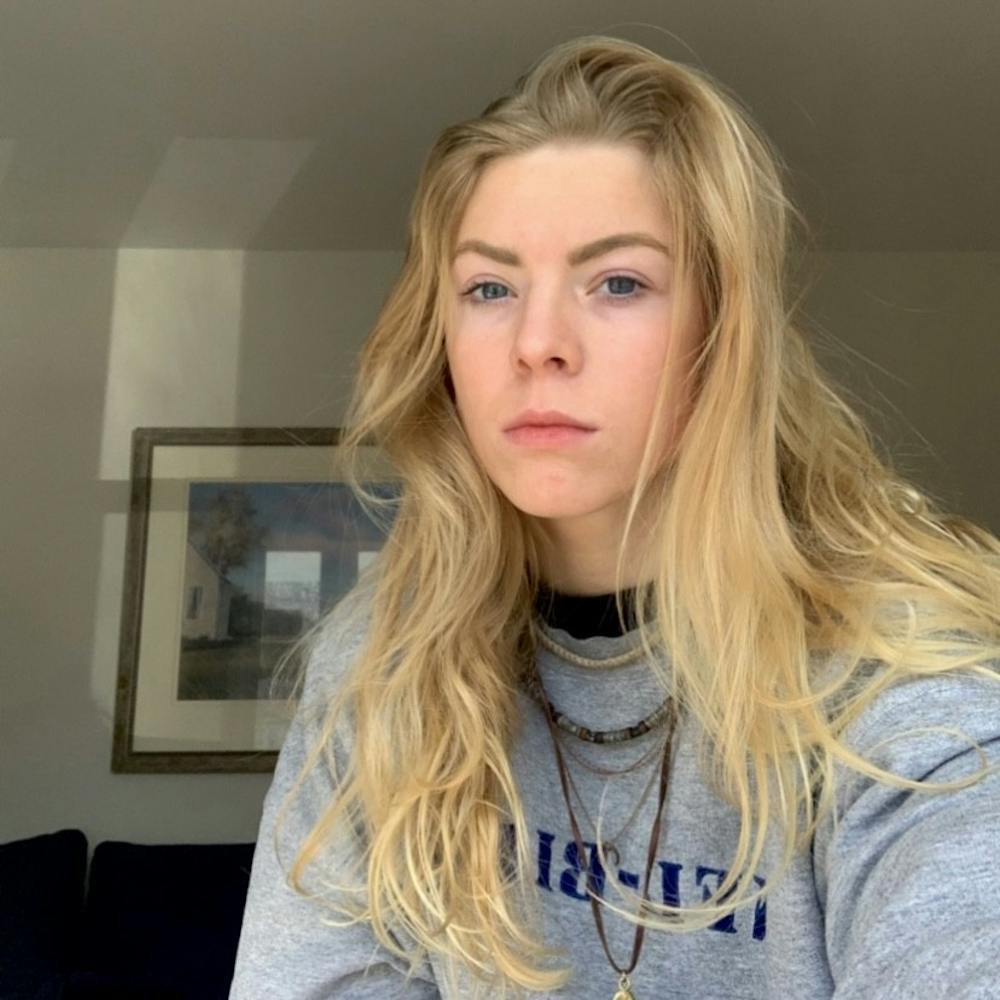This article is an opinion piece and does not necessarily reflect the views of The Eagle and its staff.
Powerful banks and insurance companies are funding industries that ravage the planet — and students are helping them do it.
Corporations like JPMorgan Chase Bank bankroll fossil fuel expansion and environmentally destructive projects. Unfortunately, they are also some of the biggest recruiters of college and university students.
This is the student-to-bank recruitment pipeline. Companies like JPMC hold large amounts of power at academic institutions, while hiding their role in enabling climate chaos. As a result, students seizing opportunities in the world of finance may be contributing to the destruction of the planet without even knowing it.
As the spring semester begins and college recruitment tactics swell, students looking to step into the business world should consider how their potential employers impact the environment.
Of course, colleges and universities have considerable influence on student-employer relations. For instance, here at American University, JPMC is a top recruiter for the Kogod School of Business. JPMC does not have recruitment representatives at career fairs, but faculty and career center staff connect students with alumni and other corporate representatives.
How is the University promoting a “culture of sustainability” when they fail to actively condemn the environmental impacts of the companies employing their students? Or when they advance the active influence of JPMC on campus by appointing Vice Chairman of JPMC Peter Sher as a board of trustee member?
Recruitment strategy is geared towards student interest. If AU cannot accept responsibility, then students can turn the tide. It is crucial that students pursue sustainable employers and not invest their education into the harmful industry of big banks, specifically JPMC.
But why is JPMC, among other major US banks, a dangerous patron of the climate crisis? JPMC is the #1 fossil fuel funder in the world.
From 2016 to 2020, JPMC provided $317 billion in fossil fuel financing, 33 percent more than Citibank and Wells Fargo. This money helped facilitate the expansion of fossil fuel extraction and infrastructure. Banks have provided $3.8 trillion in financing to fossil fuels since the Paris Agreement was signed.
JPMC not only funds the destruction of our planet but also the oppression of its people. For example, the Line 3 pipeline brings a million barrels of tar sands per day from Canada to Wisconsin. This pipeline devastates hundreds of wetlands and river systems and could contribute more to climate change than Minnesota’s entire economy. Simultaneously, it violates the treaty rights of the Anishinaabe people.
JPMC provided Enbridge, the company that led the pipeline expansion project, with $1.4 billion in fossil fuel financing. This money supported construction and labor costs as well as escrow and reimbursement paid to the Minnesota police and private task forces who brutalized and tortured water protectors.
Proponents will argue that banks like JPMC are making strides to be more sustainable. For example, they recently committed to joining the Net Zero Banking Alliance, setting goals to support climate action across public and private sectors.
However, critics have condemned banks’ targets for being too weak. The same thing that happened when banks committed to ‘Paris alignment’ is predicted to happen again: major investments in coal, oil and gas fell in the immediate aftermath of the Paris Agreement, but shot back up about 40 percent by 2019.
This is because major banks like JPMC are pros at greenwashing: they spend more time and money on marketing themselves as environmentally friendly than on minimizing their environmental impact.
Despite seemingly “green” commitments, JPMC’s investments continue to fuel big coal and oil and take no responsibility for enabling climate destruction and human rights abuses.
Also, proponents argue that corporations like JPMC have worthwhile career opportunities for students. A lot of money can be made via entry-level jobs at these institutions. However, students can advance their careers without being complicit in climate destruction.
There are alternative career opportunities in “green finance,” financial activities that are designed to ensure sustainable, environment-centered outcomes. This includes environmentally-conscious banking options, such as credit unions, B-Corp banks and fossil-free banks.
Overall, IPCC reports have made it clear that banks and insurers must stop funding fossil fuel-driven climate change. To pursue true, restorative climate justice, we must target the institutions that enable the greed and devastation of the fossil fuel industry.
This change starts with students.
“Fossil fuels are dependent on finance. If we can stop the flow of money, we can stop the flow of oil,” said Sofia Petros, an organizer with Future Coalition and Stop the Money Pipeline.
We must invest in the world we want. Students can use their finance and insurance skills to invest in a just and sustainable future while still investing in themselves.
Author's Note: We want to recognize that green finance alternatives are a step in the right direction, but not the end goal. It is a short-term transition to take power away from fossil fuel elites while still working in a capitalist economy. However, we contend that such transition work is only justice-seeking if it is accompanied by and working towards true abolition (i.e. of extractive economies and culture).
Suzy Pranger is a senior in the School of International Service. Lucy Hermann is a sophomore in the School of Public Affairs.






